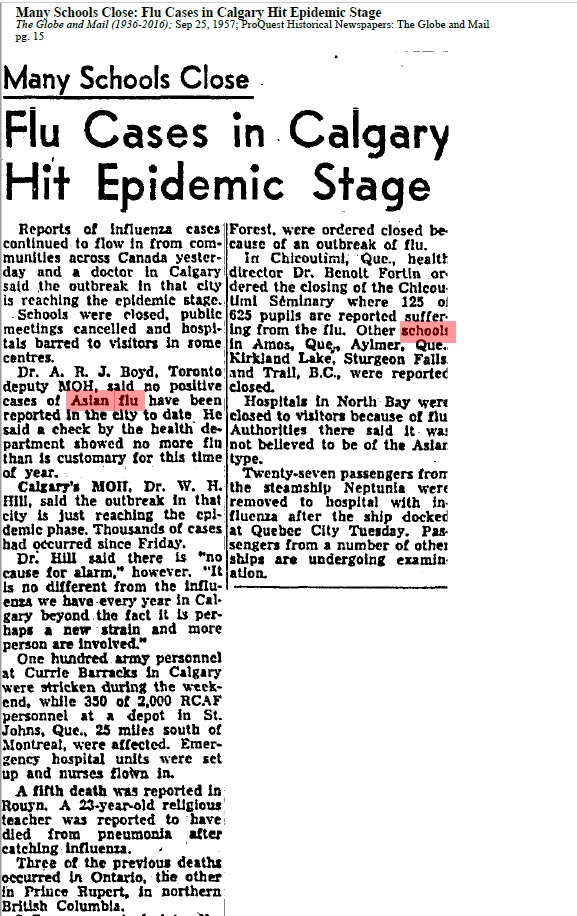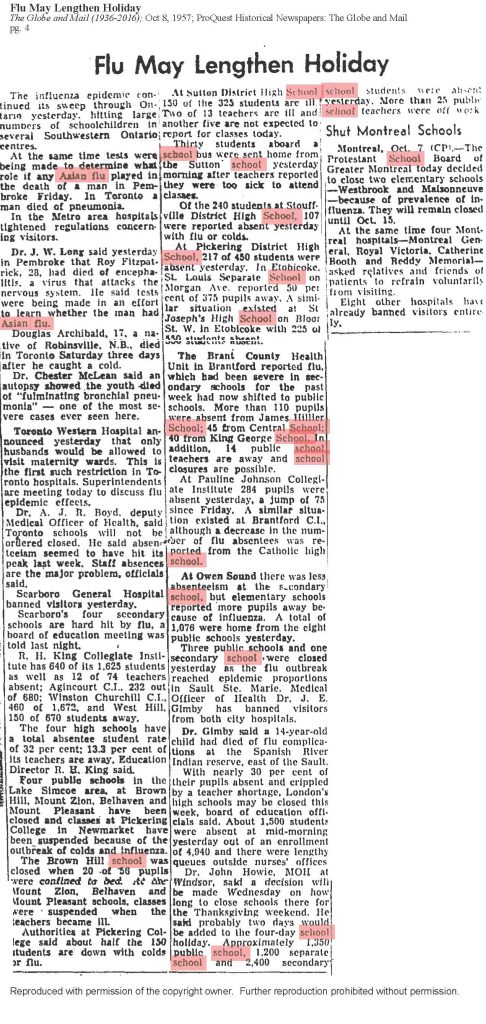In the mad dash for all universities to become places of online learning in a matter of days, I have read about the struggles many professors are having with this shift. It is not a struggle that I personally experience because I have been using online learning features in my classes for over a decade. But for those of us who have not, and those of us that teach subject matter that is difficult to assess or teach online, there is certainly a steep learning curve.
Amidst my social media meanderings, I see seminars being held on Zoom (often with cameo appearances from family pets or small chidren), readings being discussed in online forums, exams being rejigged for weighting or turned to papers, and professors wondering how to combat cheating in an online world. I am struggling, however, with the ethics of this supposed “business as usual” perspective when there is certainly nothing normal about our current circumstances.
I watched this pandemic approach for months. I shopped early. I subscribed to the subreddits on it in January. I refused to hold my classes before the university officially cancelled them. I’ve been “on this” for awhile. Yet when the cases started to roll into Canada (and Toronto, in particular) I lost the ability to work. Almost entirely. I don’t know really what I did, except worry. My husband was working at a hardware store where “social distancing” was not possible given the size of the store and the narrowness of the aisles. My mother is old and in poor health. My in-laws live on extremely limited means and suffer from poor health. I was imagining various horrible scenarios and writing the next great research piece with all my new “spare time” wasn’t on my radar. It still isn’t.
I am fortunate that I can work from home as a professor. My husband refuses to go to his job, so he probably no longer has one, but that’s ok, and we are in a position where that choice was possible. We are lucky.
But what about the students? They were forced to leave student residences abruptly. Many work in the “frontlines” at the grocery stores and other essential services that will not close. Most are taking full course loads that were all just hastily put online. How are they coping?
I teach Sociology of Education. This is definitely a “sociology of education” issue. I had put together a great third year course this term where students had a community placement, were organizing a fundraiser for an Indigenous cultural centre, and were working on Wikipedia entries. Things started to go south when the teachers’ strike made attending placement impossible. When life gives you lemons…we talked about the strike and the issues at hand, and politics. All was not lost. But then the schools closed and campus activities were suspended.
I cannot assume everyone is ok. I cannot carry on with assignments like the situation is a minor inconvenience. The first week of this, I assigned a historical reading on school closures during pandemics and the good that they did in containing viruses. It seemed relevant to the subject matter and students seemed to find it useful, even encouraging. At least that’s what they said in the online forum.
However, last week I couldn’t bear to make them read. I just asked them to tell me (anonymously if they wished) what they wished we understood as their professors. I asked their permission to share their views.
Here are some of their responses:
…this entire situation has created a lot of stress for most, if not all students. Not only have our family, social, and work lives been affected but our school lives as well. Everything has now been shifted online, due dates have been changed, marking schemes altered, and some courses are being graded on a pass or fail basis. All of these changes for a full course load can become VERY overwhelming for students. In many cases we now have to self teach at home through slides, videos or textbooks, which takes away from our learning experience.
… being stuck indoors all day, our motivation to do work has gone down significantly. Many of us also do not have the proper working environment at home, especially if there are other family members around. Despite being able to work in our rooms or in an office area at home, there are still many distractions and a lot of students have made libraries their go to place to get work done. It also does not help that cafes are closed and the weather is not optimal for working outside yet.
…I’d like to remind Profs is that a lot of us have moved back home with our families and there can be a lot going on. Everyone’s household is different and it can be a struggle to find time to sit down to study or even have a quiet place to focus since campus and libraries are closed. There’s also a lot going on with the world around us that we are trying to keep updated with. So, it’s quite difficult to balance both school online, family, and the world around us during the pandemic. Please also keep in mind not everyone is great with online learning.
… I know we are all going through this experience together, but I think some professors need to be more lenient. Yesterday I saw a tweet that said “Oh you’re going through a world pandemic? No problem here are 3 exams, 2 projects, and a lab report due this week plus you have to teach everything to yourself goodbye” and I haven’t read something more accurate. I know professors are trying their best, don’t get me wrong, but there needs to be a greater sense of understanding as students handle stress differently.
…A very close friend of mine does not have internet access where she lives and used to go to the nearest Starbucks or library that provided internet for her. She is now struggling and had to decide to stay in her student house by herself during this time so she would have the resources. Some so many students do not have resources because of their location or due to their financial status. Although this is not personally happening to me, it is still something I worry about.
…the one benefit of being stuck at home should be less distractions, thus easier to work. However, I cannot focus. I’m concerned about my safety, my parents’ safety, the well-being of my peers, my unexpected new-found role as ‘living with parents and unemployed’… I can’t focus. I can’t sleep. I can’t think straight. Amidst all of this I have 6 courses to complete which decide if I graduate or not, with final assessments all due around the same time. They have mostly all been significantly re-weighted, as such the successful completion of all these assignments is absolutely crucial. I’m really stressed out, and scared.
…Some students also are being indirectly affected by having their daily routine interrupted and this can cause a lot of mental distress as well as physical. There are people who are isolated from their family and friends. There are students who are in a precarious living situations, especially students in residence.
… It’s not easy to focus on schoolwork which seems so trivial compared to what is happening outside our houses. It’s not easy focusing when people have to worry about the safety of their family and friends and themselves. The virus is developing at such a fast rate that literally changes to the world happens in a matter of hours. The uncertainty makes it difficult to carry on normally.
…I appreciate that it’s not fair for teachers to simply pass students without them meeting eligible criteria, however when that criteria was established, there was little assumptions that we would find ourselves as we do now. I think students would benefit from extensions that extend past the standard time frame for mark submission. I fear many students would not feel comfortable sharing these feelings with professors in light of gaining a poor reputation among their assessors. As such, they simply take the late marks, or reduced grades as the way things shook out because of the pandemic.
… My number one wish is that professors were more lenient during this time and understood all the changes we are going through. Something that shocks me is that none of my professors have let us know what to do if we get COVID-19. It is likely that at least 50% of the population will get it, and it worries me that we don’t know of anything in place that will support us other than an [excused absence form].
…The first few days of quarantine, I found myself greatly disoriented and as though my brain went foggy. I am not close with my roommates, and have been in my room for days now without social interaction or routine, and have been feeling very down and lonely. Even though us young people are glued to our screens constantly, personally, I always prefer in-person interaction and have found that my learning abilities depend on that form of communication. There is pressure to be extra productive now that I am doing nothing else but work, however the past few days has proven to be the least productive ones yet this year.
…the regularity in my life is absolutely in the trash and it’s messing with my ability to properly manage my time.
…We are moving home to take care of loved ones, having to change our social and academic environment within a days notice, and are still having to keep up with the rigorous nature of academia. Another important note is that many students are going through financial hard times, many families are going through lay offs and EI only covers up to 50% of what you would typically be making. I wish that professors understood that the current problem for students isn’t just the curriculum change, all aspects of our lives are changing and it’s incredibly hard to manage all of the work they have assigned while trying to adapt to a million other changes.
I guess none of this was terribly surprising to me, except the comment about what to do about their coursework if they happen to contract COVID-19 themselves. I think we have all been trying to rush this in the hopes we can finish the Winter term without our students being vulnerable to this –at least yet.
Listen to your students. Let them access you in different ways – don’t insist a single form of communication, allow for emails, calls, online messaging — if you can. If you have hundreds of students, this is not possible, I realize. Rethink if that massive final paper is really necessary. Maybe a short reflection piece would be just as useful? I don’t have all the answers — I just wanted to give the students a chance to tell us what they thought we should know.
KR



